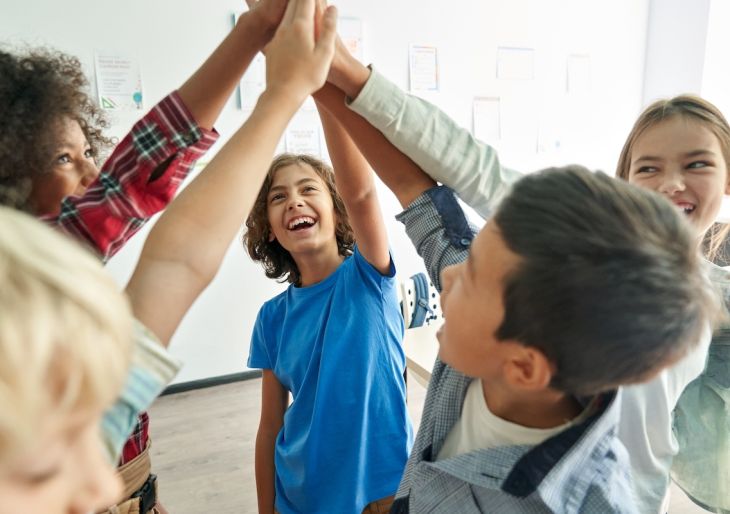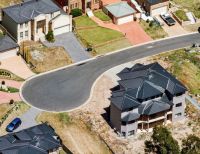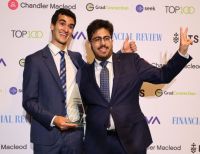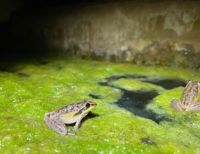Misconceptions and a lack of targeted teacher training prevent us from identifying and supporting our gifted students, says an expert from UNSW Arts, Design & Architecture.
Australia must address inequities within its education system that neglect the needs of gifted students, says UNSW expert in gifted education Associate Professor Jae Yup Jared Jung. An absence of specialised training leaves teachers ill-equipped to identify and cater for gifted students whose untapped potential equates to a cost for all Australians, says A/Prof. Jung, director of UNSW’s Gifted Education Research Centre (GERRIC).
“All students, regardless of their circumstances, have the right to an education that meets their learning needs. This includes providing appropriate support to help gifted children aspire to and achieve excellence,” A/Prof. Jung says.
“Our brightest students are those who are most likely to make a real difference to society; they’re the ones best placed to find cures for cancers, solutions to global poverty, and to address today’s climate crisis. And yet, they’re the most neglected group within our education system.”
Gifted education needs to be part of preservice training
The NSW High Potential and Gifted Education Policy recognises that gifted students need to be supported by effective school environments, including quality teaching, learning and leadership, to reach their potential. Yet today’s teacher training in NSW does not enable this, says A/Prof. Jung.
Teachers in NSW must complete compulsory units in working with students who have special needs, such as those living with disabilities, learning difficulties and/or autism, but most preservice teacher training programs in Australia do not incorporate a unit in gifted education.
“This is despite the fact that the Australian Professional Standards for Teachers explicitly require all teachers in Australia to be able to differentiate their teaching to meet the specific learning needs of students across the full range of abilities,” A/Prof. Jung says.
“This gap in teacher training dates back to the early 1990s … so for the last 30 plus years we have largely ignored the educational needs of a section of the student population who may have made significant and substantial contributions to Australian society.”
Research has shown that up to 50 per cent of gifted students are underachieving; that 20 per cent drop out of high school, and that 40 per cent fail to complete tertiary education.
“Certain students will be bored with the standard curriculum that’s targeted at the average student ... We group students together by age and we expect all students of the same age to be working at the same level. But that’s simply not the case,” he says.
“This egalitarian approach to education we have in Australia is like saying everyone who is the same age, regardless of their height, or weight, or body-type should wear the same size t-shirt.”
In fact, the most gifted students in any grade, he says, may be five or six years ahead of other students. “We need to understand that our student population is heterogeneous and pitch our education appropriately.”
Misconceptions about gifted students can mask their identification
In Australia, gifted children are defined, following the Differentiated Model of Giftedness and Talent proposed by the French-Canadian academic Françoys Gagné, as those in the top ten percent of ability or potential within their age group.
Gifted children have the capacity to transform their abilities into achievements – across intellectual, creative, social-emotional and/or physical areas – faster than their age peers. They may be identified from as young as two years old. “Most often we rely on teachers and parents to identify gifted and talented children,” he says.
Research has shown that the earlier we intervene, the better students will perform in the long term, he says. However, common – often negative – perceptions of gifted students can deter the identification of gifted students, he says.
Teachers play a pivotal role in the development of the next generation, but they are undervalued, under-resourced and underpaid, he says. “Teachers are usually well-intentioned but if they don’t have training in gifted education, they may rely on common myths and stereotypes about gifted students and gifted education.”
Unfortunately, those from certain backgrounds, including students from low socio-economic backgrounds, culturally diverse backgrounds, First Nations backgrounds and rural backgrounds appear to be the most disadvantaged among gifted students, as their potential often goes unnoticed, he says.
For example, these students are currently under-represented in NSW’s academically selective schools and Opportunity Classes, which represent one option to address the educational and related needs of gifted and high-ability students, he says.
“Nevertheless, the NSW Department of Education is aware of the issue and have taken measures to address it. For example, they have recently introduced a refined entrance test for academically selective schools and Opportunity Classes,” he says.
Additionally, under the Equity Placement Model, which A/Prof. Jung helped develop, the Department is reserving up to 20 per cent of places in academically selective schools and Opportunity Classes for students from disadvantaged backgrounds.
Gifted students require support
Creating a learning environment that is conducive to the educational needs of gifted students requires additional support, he says. “A common misconception is that gifted children can take care of themselves, and that they are guaranteed academic achievement and success,” he says.
Unfortunately, without targeted assistance and interventions, gifted students may stagnate, disengage, and even disrupt the classroom environment and the learning outcomes of other students, he says.
“Gifted students can require support to manage their self-perceptions, confidence and motivation or self-efficacy, their attitudes towards teachers and school, as well as their anxiety, emotional engagement and goal orientations.”
Teachers also need guidance in identifying ways to enrich or extend the curriculum and learning opportunities. Highly gifted students, for example, may require specific and significant curriculum adjustments to meet their learning and wellbeing needs.
Australia’s performance in education is steadily declining
Australia’s school performance has been dropping against global standards over the last two decades. “Given our neglect of gifted students, it is not surprising we’re seeing such a decline … particularly with our brightest students, in international assessments, such as PISA [Program for International Student Assessment] and TIMSS [Trends in International Mathematics and Science Study],” he says.
Australia’s mean performance in PISA has been steadily declining across reading (since 2000), mathematics (since 2003) and science (since 2012) with the proportion of top-performing students decreasing in mathematics (since 2012) and in science (since 2006). The triennial survey of 15-year-old students assesses knowledge and skills deemed essential for full participation in society.
Additionally, research has shown that many gifted students move overseas to pursue professional opportunities deemed unavailable in Australia, he says.
A/Prof. Jung is part of the National School Reform Agreement Ministerial Reference Group, that brings together state and territory governments, teachers, principals and other education experts, to work with Jason Clare, the Federal Minister for Education, on the Review of the National School Reform Agreement.
The reference group will provide advice to inform the development and negotiation of the next National School Reform Agreement and Bilateral Agreements with individual states and territories. It will build on the Productivity Commission’s report, released in January 2023, recommending the Agreement be redesigned to improve the academic achievement, attainment and engagement of all students.
A/Prof. Jung is advocating to improve the provision for gifted students in all Australian schools as integral to this. “We have a responsibility to today’s students and to future generations to consider how we can both nurture and retain our homegrown talent. These are the bright minds that will help us navigate and alleviate the most pressing issues we are faced with today.”







